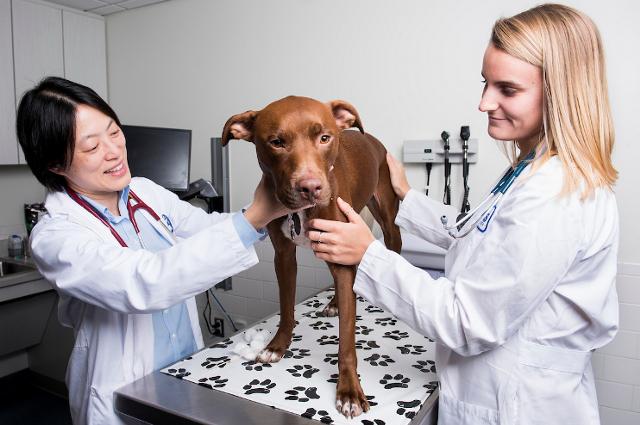-
About
- Departments & Offices
-
Academics
- Public Health
- Biomedical Sciences
- Physician Assistant
- Special Master’s (MBS)
-
Admissions & Financial Aid
- Tuition & Fees
-
Student Experience
-
- Student Resources by Program
- Academic & Student Support
- Wellness & Wellbeing
- Student Life
- Events & Traditions
-
-
Research
- Research Labs & Centers
- Tufts University-Tufts Medicine Research Enterprise
-
Local & Global Engagement
- Pathway & Enrichment Programs
- Global Health Programs
- Community Engagement
Investigating Cancer Treatments’ Effects on the Heart and Blood Vessels
Tufts’ human and veterinary medical researchers collaborate to prevent and better treat cardiovascular damage in people and pets who have survived cancer

An explosion in cancer therapies over the past decade has greatly improved people’s chances of surviving cancer. There are upward of 16 million human cancer survivors in the U.S. today—and that number is expected to grow substantially over the next five to 10 years.
The development of new targeted therapies has even transformed some once-terminal cancers into health conditions that can be managed more like a chronic disease. “That is a huge success story,” said Iris Jaffe, cardiologist and executive director of the Molecular Cardiology Research Institute (MCRI) at Tufts Medical Center.
However, some advances in cancer treatment have come at a cost, Jaffe said. Most of the new cancer therapies were studied in cancer patients who otherwise might have died from their cancer. The drugs were approved based on the survival data demonstrating their efficacy for treating tumors and metastasis.
“Now, in many cases, we put patients on these drugs for life. And we’re discovering that many novel cancer therapies cause heart and blood-vessel side effects that were unanticipated when those drugs were first approved,” she said.